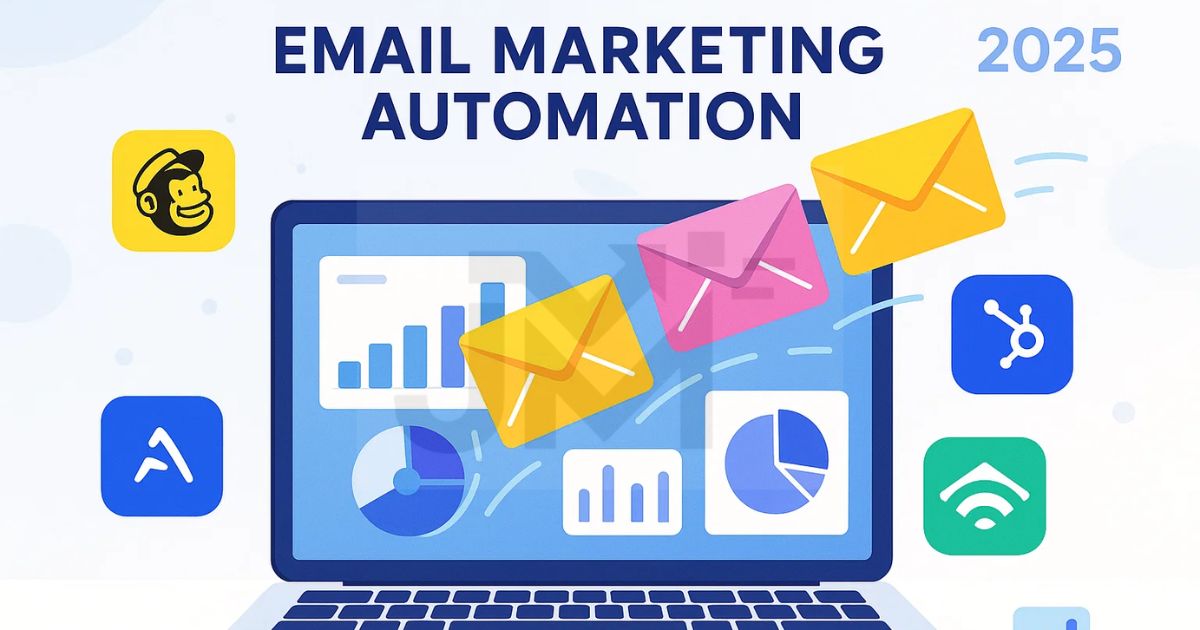Email marketing remains one of the most effective digital marketing strategies. Despite the rise of social media, paid ads, and influencer campaigns, email consistently delivers one of the highest returns on investment (ROI) for businesses. In 2025, the industry has evolved even further, with advanced automation, artificial intelligence (AI), and data-driven personalization transforming how brands communicate with their audiences.
The challenge for marketers is not whether email works—it’s choosing the right tool to execute campaigns effectively. With dozens of platforms available, selecting the right one depends on features, scalability, and ease of use. To save you time, we’ve curated a detailed list of the best email marketing tools in 2025, covering their strengths, pricing, and unique features.
Why Businesses Still Rely on Email Marketing
Before diving into the tools, it’s important to understand why email remains a powerful channel:
-
High ROI: Studies consistently show that for every dollar spent on email marketing, businesses can earn up to $40 in return.
-
Direct audience access: Unlike social media algorithms, emails land directly in inboxes.
-
Personalization: Advanced segmentation allows marketers to deliver tailored messages.
-
Automation: Marketers can run drip campaigns, abandoned cart emails, and follow-ups with minimal manual effort.
-
Analytics: Open rates, click-throughs, and conversions provide measurable performance data.
With technology advancing, email marketing in 2025 is smarter, more efficient, and more personalized than ever.

1. Mailchimp
A household name in email marketing, Mailchimp remains one of the top choices in 2025. Known for its intuitive interface, Mailchimp is ideal for small to medium-sized businesses.
-
Features: Drag-and-drop editor, A/B testing, automation workflows, and AI-powered content recommendations.
-
Pricing: Free plan available; premium plans scale with audience size.
-
Best For: Beginners and small businesses looking for user-friendly tools.
2. HubSpot Email Marketing
HubSpot offers a powerful suite of marketing tools, with email being a central feature. It integrates seamlessly with CRM, making it a favorite among B2B businesses.
-
Features: Personalization tokens, advanced segmentation, analytics dashboards, and integration with sales pipelines.
-
Pricing: Free plan with limited features; paid plans start at higher tiers.
-
Best For: Companies seeking an all-in-one inbound marketing solution.
3. ActiveCampaign
ActiveCampaign is widely respected for its automation capabilities. It goes beyond email, offering SMS marketing and CRM integration.
-
Features: Advanced automation workflows, predictive sending, lead scoring, and omnichannel marketing.
-
Pricing: Affordable plans for small businesses with scalable options.
-
Best For: Marketers who want detailed automation and customer journey mapping.
4. Brevo (formerly Sendinblue)
Rebranded as Brevo, this platform has gained momentum in 2025 for offering an all-in-one marketing suite at competitive pricing.
-
Features: Email campaigns, SMS, WhatsApp campaigns, live chat, and automation.
-
Pricing: Generous free plan; affordable paid options.
-
Best For: Businesses that want multichannel marketing in one platform.
5. ConvertKit
Designed with creators in mind, ConvertKit is a go-to for bloggers, YouTubers, and online educators.
-
Features: Simple automation, customizable landing pages, email sequences, and digital product sales.
-
Pricing: Free plan available; paid plans scale with subscribers.
-
Best For: Content creators and solopreneurs.
6. Klaviyo
Klaviyo is an e-commerce favorite, particularly among Shopify store owners. It specializes in data-driven email marketing tailored for online sales.
-
Features: Customer segmentation, personalized recommendations, pre-built e-commerce templates, and revenue tracking.
-
Pricing: Free tier for smaller lists; premium pricing scales with growth.
-
Best For: E-commerce brands focused on customer retention and sales.
7. Constant Contact
A veteran in the email marketing world, Constant Contact remains strong in 2025, particularly for small and medium businesses.
-
Features: Event management tools, surveys, automation workflows, and integrations with WordPress and Shopify.
-
Pricing: Straightforward plans with reliable support.
-
Best For: Small businesses looking for stability and ease of use.
8. GetResponse
GetResponse is a versatile platform that goes beyond email, offering webinars, automation, and conversion funnels.
-
Features: Email automation, AI-powered recommendations, built-in landing pages, and webinar hosting.
-
Pricing: Competitive plans starting at affordable rates.
-
Best For: Businesses that want to combine email with lead generation and webinars.
9. Moosend
One of the most budget-friendly options, Moosend is gaining traction in 2025. Despite its affordability, it delivers robust features.
-
Features: Drag-and-drop editor, personalization, marketing automation, and real-time analytics.
-
Pricing: Free trial with low-cost plans for small businesses.
-
Best For: Startups and businesses on a tight budget.
10. Omnisend
Omnisend is designed for e-commerce marketers who want multichannel campaigns. It combines email, SMS, and push notifications.
-
Features: Pre-built e-commerce workflows like cart abandonment, cross-selling, and product recommendations.
-
Pricing: Free plan for smaller stores; paid plans scale with sales.
-
Best For: Online retailers needing integrated marketing.
11. Benchmark Email
Benchmark Email focuses on simplicity and modern design. It’s a great choice for businesses that want sleek campaigns without a steep learning curve.
-
Features: Drag-and-drop builder, responsive templates, automation, and surveys.
-
Pricing: Free starter plan; competitive premium options.
-
Best For: Businesses that value attractive, responsive email designs.
Emerging Trends in Email Marketing 2025
Beyond tools, it’s important to recognize the trends shaping email marketing this year:
-
AI-powered personalization: Tools now analyze customer behavior to recommend the best send times and tailor subject lines.
-
Interactive emails: Clickable carousels, polls, and gamification boost engagement.
-
Privacy-first marketing: With stricter data regulations, marketers focus on transparency and consent.
-
Omnichannel integration: Email platforms now sync with SMS, social media, and chatbots for unified messaging.
-
Hyper-segmentation: Instead of broad lists, businesses create micro-segments to send hyper-relevant messages.
How to Choose the Best Email Marketing Tool for Your Business
With so many platforms available, consider these factors when choosing the right fit:
-
Business size: Small startups might lean toward Mailchimp or Moosend, while enterprises may need HubSpot or ActiveCampaign.
-
Budget: Compare free plans and scalable pricing.
-
Features: Prioritize automation, integrations, or analytics depending on your goals.
-
Industry focus: E-commerce brands benefit from Klaviyo and Omnisend, while creators thrive with ConvertKit.
-
Ease of use: If your team lacks technical expertise, a user-friendly interface is key.
Final Thoughts
In 2025, email marketing is smarter, more automated, and more personalized than ever. The platforms listed above represent the best email marketing tools 2025, each catering to different business needs.
Whether you’re a small business owner just starting out, a content creator growing an audience, or an e-commerce brand scaling globally, there’s a tool designed to help you connect with customers and drive measurable results.
By carefully selecting the right platform, businesses can save time, improve engagement, and maximize ROI—proving that email marketing is far from outdated. In fact, it’s evolving into one of the most data-driven and effective digital channels available today.














.jpg)